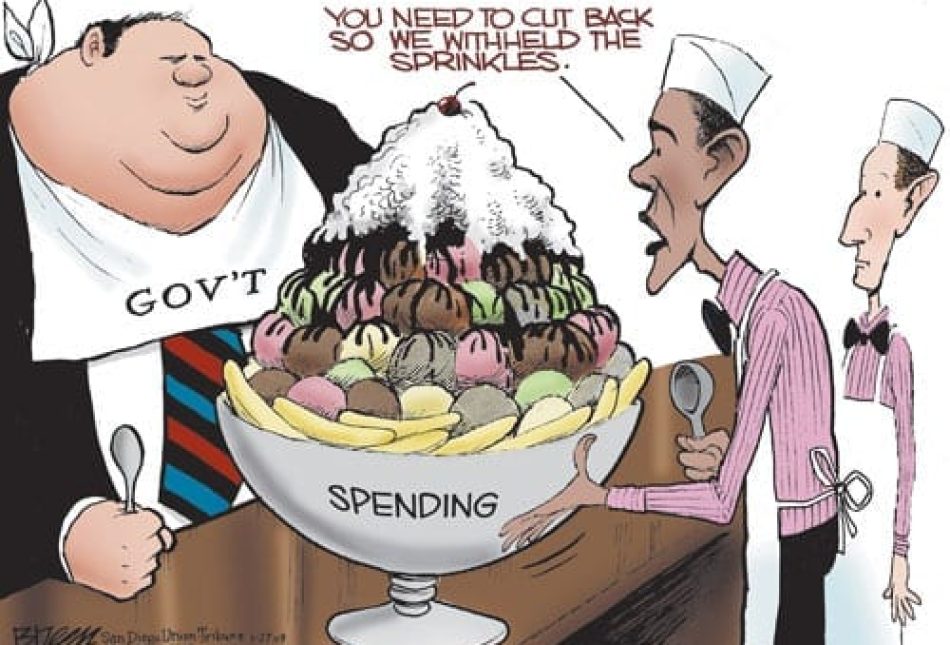‘Medicare for All’ Will Bankrupt the United States

New Mexico Sen. Dede Feldman — and many advocates of a government takeover of U.S. health care — is adamant that a so-called “public option” be included in any reform package passed by Congress. In a recent opinion piece, Feldman cited Medicare as a model, saying it “has been one of the most popular programs in U.S. history…” and that it has been successful at keeping down administrative costs and providing basic coverage to virtually all seniors.
Thus, Medicare is the government-run health care model America needs to cure its health care woes which are, in the view of Feldman and others, caused by hospitals, pharmaceutical companies and insurance companies. The possibility that government could be at fault for any health care problem never seems to cross her radar screen.
Well, I’ve got news for Sen. Feldman and those who want “Medicare for all”: Medicare is at the very root of what is wrong with American health care — and to an extent our economy — and a massive expansion of the program would quickly bankrupt the nation. For starters, Medicare’s expected future obligations exceeded premiums and dedicated taxes by an astounding $89 trillion. That’s about 5 1/2 times the size of Social Security’s ($18 trillion) unfunded liability and about six times the size of the entire U.S. economy.
The massive deficits our nation currently faces are a big problem, but they pale in comparison to those that have resulted from Medicare, a program that scrimps on administrative costs — as Feldman notes — but loses billions each year in fraudulent claims.
For starters, according to an Associated Press story late last year, the inspector general for the U.S. Department of Health and Human Services found that 70 percent of Medicare payments in 2008 for patient medical supplies for the elderly and disabled should not have been approved.
One of the major objectives of health care reform is improvement in the delivery of services to Americans. The need for improvement is obvious. A news story by MSNBC, based on an investigation by a subcommittee of the U.S. Senate Homeland Security Committee, reported that more than a billion dollars in claims were paid between 2001 and 2006 without valid medical diagnostic codes. The result has been a host of cases involving senseless waste.
For example, in some cases cited by the report, leg amputees were approved for medical shoes; wheelchairs were prescribed for patients with sprained wrists; and walkers were provided for paraplegics who would never take another step.
Of course, when Medicare does try to cut costs, it usually does so by cutting reimbursements to doctors. This results in cost-shifting from the government onto the backs of private insurers, employers, patients, and most of all, doctors. The most recent data available show that Medicare alone shifted $48.9 billion in costs onto the backs of the private sector one year. This number doesn’t even include Medicaid, another costly government program, which shifted $39.9 billion in much the same way.
The fact is that there is no “free market” in American health care. Government, mostly through Medicare and Medicaid, pays for approximately 50 percent of all health care in this country. What it doesn’t pay for directly, government regulates with a heavy hand in ways that further drive up costs. These regulations include state mandates, licensing and the bureaucratic and costly Food and Drug Administration to name just a few.
“Medicare for all” will only result in greater indebtedness, higher taxes and dramatically increased waste, fraud and abuse, the costs of which will be paid for by all of us. Until Congress and legislators wake up and realize that government is not the solution to our health care problems, rather it is creating and exacerbating the problems we now face, the costs of paying for our health care will rise, placing an ever-greater burden on our society.
Rather than relying on bigger government to solve our problems, policymakers should work to limit government’s role to paying for only the neediest — preferably at the state level. They should also restore the doctor-patient relationship by empowering consumers to shop around for the highest quality care at the best prices. Those steps will lead to what we all want: better care, available to greater numbers of people and at reasonable costs.
Paul Gessing is president of the Rio Grande Foundation; a non-partisan, tax-exempt research and educational organization dedicated to promoting prosperity for New Mexico based on principles of limited government, economic freedom and individual responsibility.

